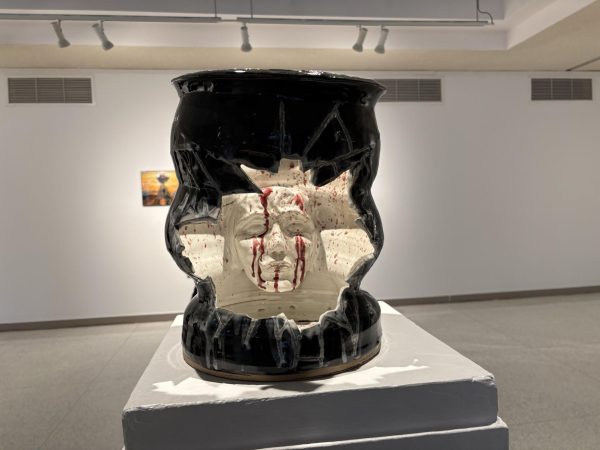Young Thug’s ongoing, mesmerizing evolution
If you don’t quite get Young Thug, everything surrounding the release of his new mixtape, “No, My Name is Jeffery,” probably feels excessive. He’s changed his name to Jeffery, his birth name, for a week, he’s wearing a bizarre dress on the cover and he named each of the songs after someone who has inspired him, and all for another Young Thug release that does not constitute an official album, one of the many from him over the past year.
The good news is that the music might be his most accessible yet, and all of the flourishes, down to the rawest track on the mixtape being named “Harambe,” are pretty cool. The better but harder to explain news is that, while being accessible, Young Thug has maintained and even exceeded his high standard for experimentation.
Some of the best music on “No, My Name is Jeffery” often does not resemble rap. On many of the tracks, Young Thug slows down his verses and borrows from R&B. It feels as if he found a way to stretch out the more unique aspects of his vocal delivery, allotting himself fewer words and using the ones he has to express himself more precisely.
This refinement is thematic as well as vocal, remaining stylistically unique, while also allowing him to further transcend the problematic “stylist” label. It’s been clear for a while that Young Thug’s expressiveness is doing more than reanimating gangster rap tropes, but that has not stopped journalists from explaining him as a kind of vibrant recycler of old material.
On previous releases, there was often a stark contrast between his more inward looking moments and expressions of hedonistic glee, sometimes within the same song, making the “stylist” explanation easy, if not accurate. You could lose track of his emotional center, making his music seem more one-dimensional than it actually is. Here, though, even more than in “Barter 6,” his most popular previous release, Young Thug finds ways to harness his contradictions.
That development—and the more musical ones—are best traced over the course of the last three songs of the album, which make up the best three song stretch on any Young Thug release. “Harambe” finds Young Thug delivering his lyrical transgressions with more menace than before. He would blurt obscene lines like “I shoot at the reverend” on previous songs, but it never elicited much more than momentary shock and a laugh, because he sounded joyfully distant. When he screeches “I’ll pull up and bust your mama” on “Harambe,” it carries more weight because the song sounds angry. Think of it as his “King Kunta,” because it remains a fun song.
He explores frustration further on “Webbie (feat. Duke),” crooning the complaint that “these politicians are so fake” in the chorus, and offering something of an answer to it. Drugs are part of that answer, but not all of it. The song communicates artistic urgency, a need to express in response to pain and inauthenticity, something Duke’s harrowing verse about being discovered as a rapper helps clarify.
The final song, the name of which has changed from “Pop Man” to “Kanye West (feat. Wyclef Jean),” sees Young Thug happy with artistic expression in and of itself. The song is about dressing up without caring what anyone else thinks, about looking like a “peacock” as a route to self-expression. The song makes Thugger’s, as his fans often refer to him, joyful distance from the rest of us, and the dress he wears on the cover, feel perfect.
I don’t know why the song is named after Kanye, as its reggae vibes do not evoke him at all, but I do like comparing the two. Both gives us an intimate look at how they contradict pop star norms. Kanye’s insecurity brushes against the outsized audience he desires, and Young Thug’s need to stay weird defies the blueprint for becoming a more popular artist. For Kanye, the intimacy comes from his willingness to express his insecurity on any platform, and for Young Thug, the intimacy comes from the frequency and ongoing evolution of his output.
The artistic exploration feels tied to a search for a personal sense of authenticity, and continued relevance feels like a byproduct rather than the objective. This is why Young Thug’s switch to Jeffery and the dress he flaunts land at the same time. Unlike Kanye’s situation, though, Young Thug’s journey has a lesser chance of being alienating. If you are still not with Young Thug, “No, My Name is Jeffery” shows he might be on his way to meeting you there, all the while not caring why you did not like him in the first place.







